Valieva leads way after short skate routine in Beijing
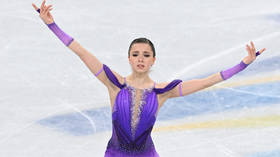
Russian figure skater Kamila Valieva is in first place in the women’s individual event in Beijing after completing an emotional short skate program on Tuesday.
Gold medal favorite Valieva scored 82.16 points for her program, some way off her world record best but still impressive given the immense pressure the 15-year-old had endured heading into the event.
Valieva stumbled on a triple axel, but the Russian youngster’s other elements were superb, including a flawless triple flip and a triple lutz-triple loop combo, which she landed in the second part of her routine.
Valieva was tearful at the completion of her performance, but kept control of her emotions and was seen smiling while hugging coach Eteri Tutberidze before waiting for her result to be announced.
The score was enough to put Valieva top of the pile after the first of two events, with the free skate routine to come on Thursday.
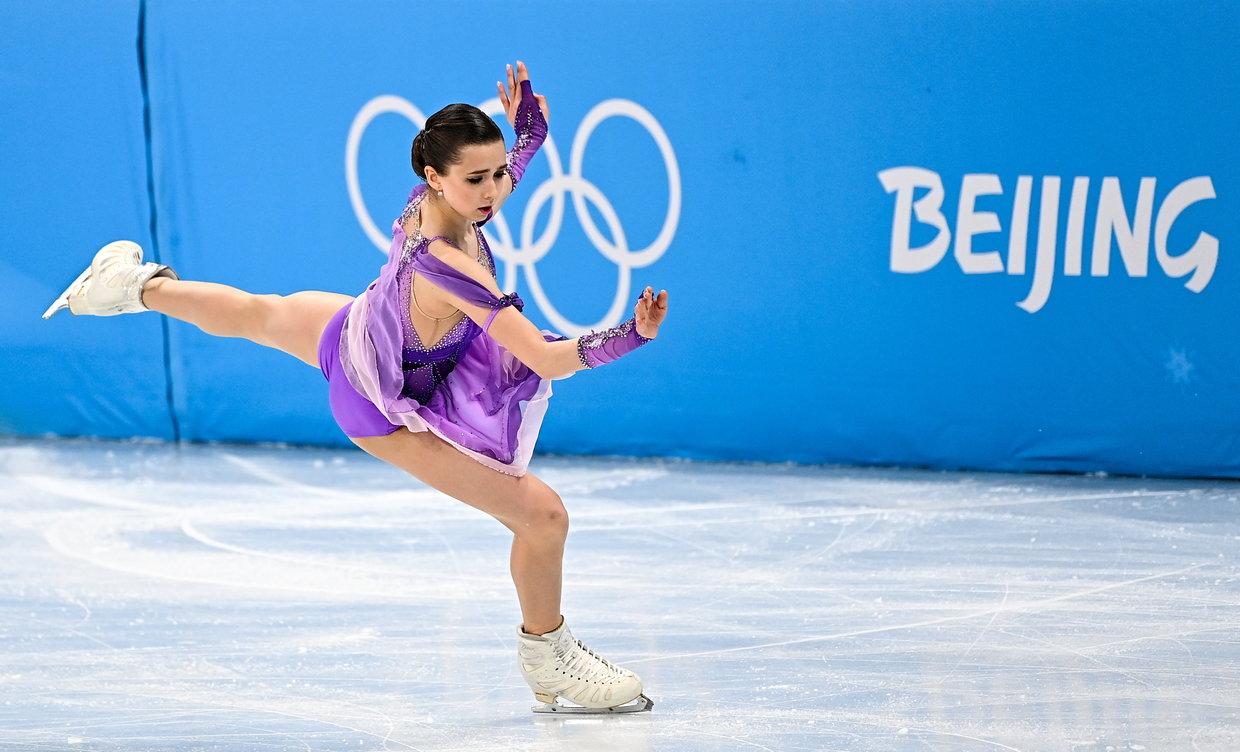
Following a week-long ordeal, Valieva had only been cleared to complete in the women’s individual competition after the Court of Arbitration for Sport (CAS) rejected appeals to impose a suspension on the Russian skater.
The Russian champion tested positive for a banned heart medicine in a sample taken in December, but the result was only reported last week – after Valieva had already helped the Russian Olympic Committee (ROC) to gold in the team event in Beijing.
Valieva had admitted on the eve of the individual competition that the doping case – which included a lengthy late-night hearing at which she testified at the start of the week – had left her feeling “emotionally tired.”
All eyes were on the teenager as she took to the ice as the 26th competitor in a field of 30 at the Capital Indoor Stadium.
Valieva is the official world-record holder for the short program with the tally of 90.45 she registered at the European Championships in January.
Valieva was short of those stratospheric standards on Tuesday, but still produced an admirably composed and elegant skate to the tune of ‘In Memoriam’, in a routine dedicated to her late grandmother.
Valieva was tearful at the end of her performance but waved and smiled before her score was announced.
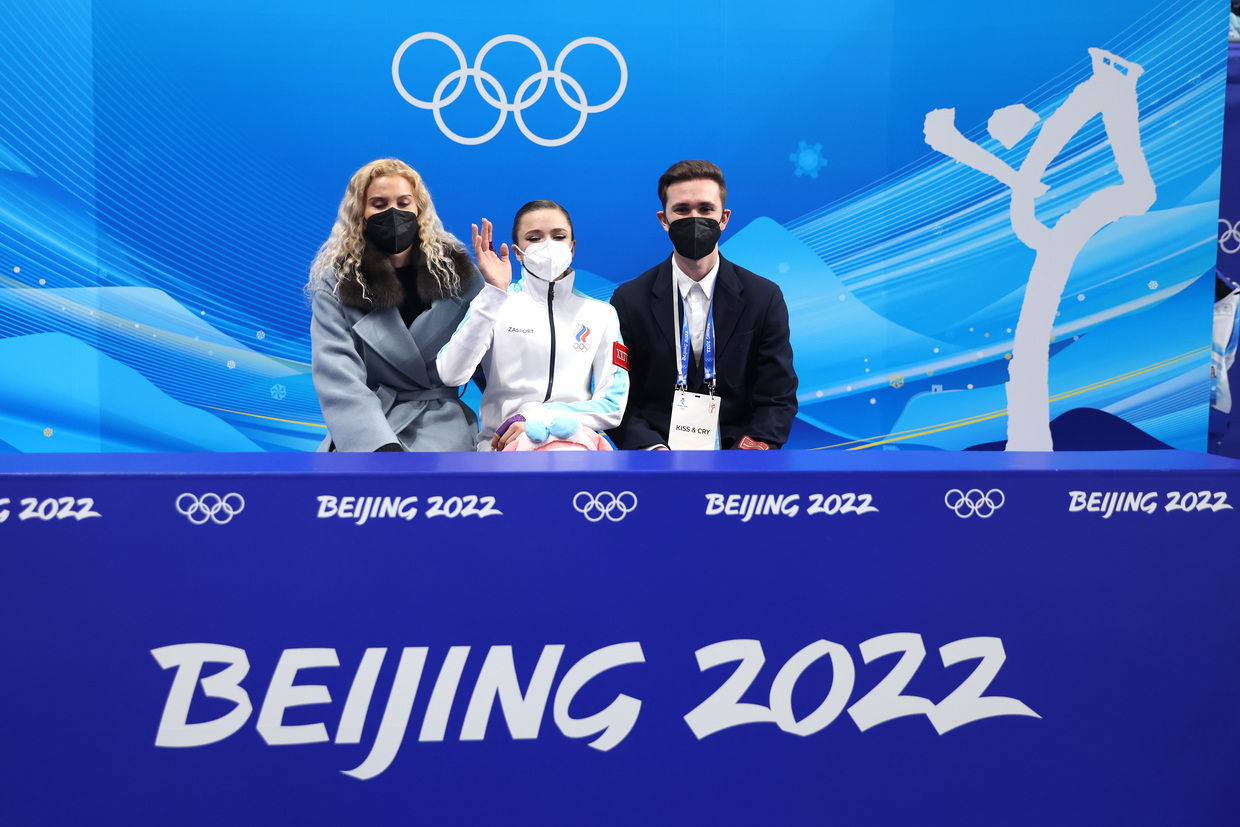
While Valieva is fancied for gold in Beijing, she was tipped to face a challenge from Russian rivals Alexandra Trusova and world champion Anna Shcherbakova.
Trusova, 17, followed Valieva onto the ice, falling on her opening jumping element, a triple axel.
But the ‘Russian rocket’ recovered to land a perfectly executed triple flip, before adding a solid triple lutz-triple toe loop combo.
The two-time European bronze medalist earned 74.60 points for her routine, putting her temporarily into second place, behind Valieva.
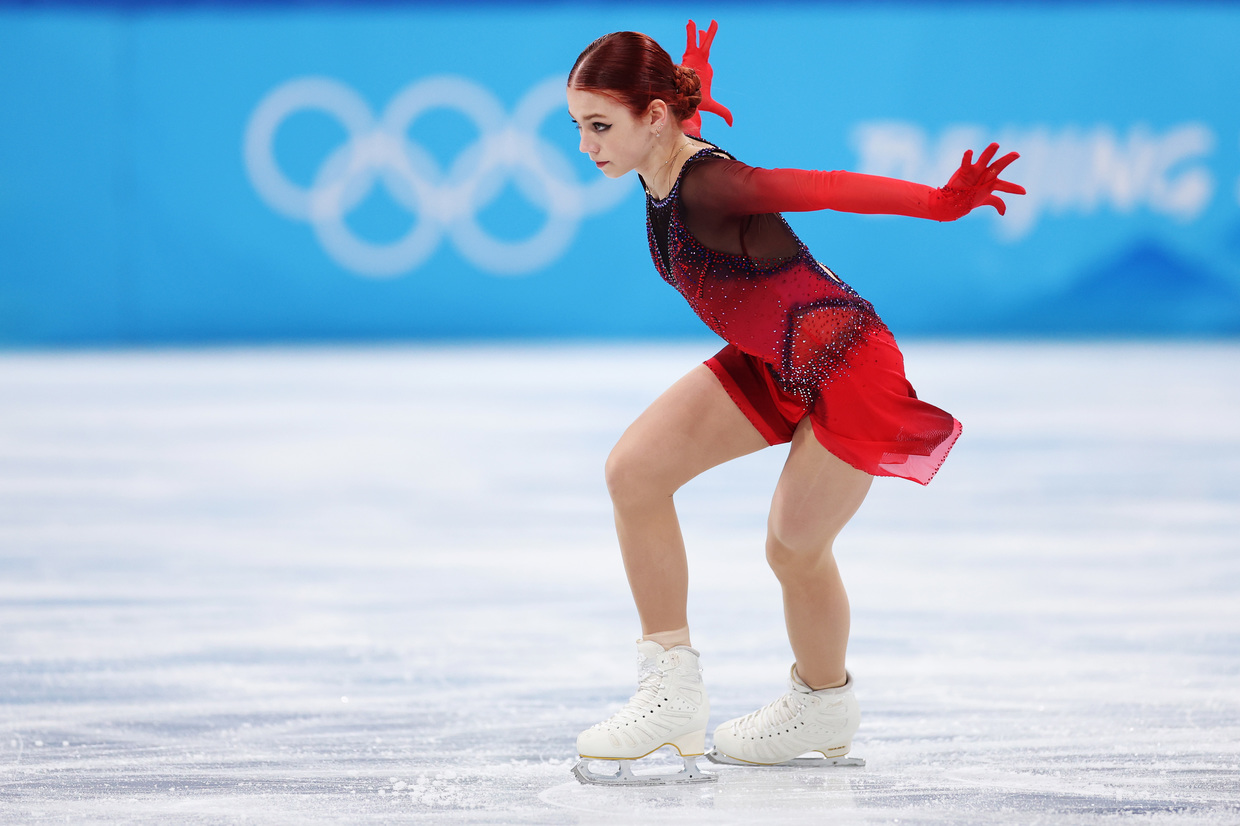
That position was not to last, however, as Shcherbakova completed her routine.
The 2021 world champion produced a stellar short program to the music of 'Dangerous Affairs' by composer Inon Zur, opening her routine with an immaculately landed double axel.
The 17-year-old then threw a solid triple flip to add a nice combo of a triple-lutz- triple toe-loop combo.
Shcherbakova was rewarded with 80.20 points for her program, a score which moved her ahead of Trusova in the standings.
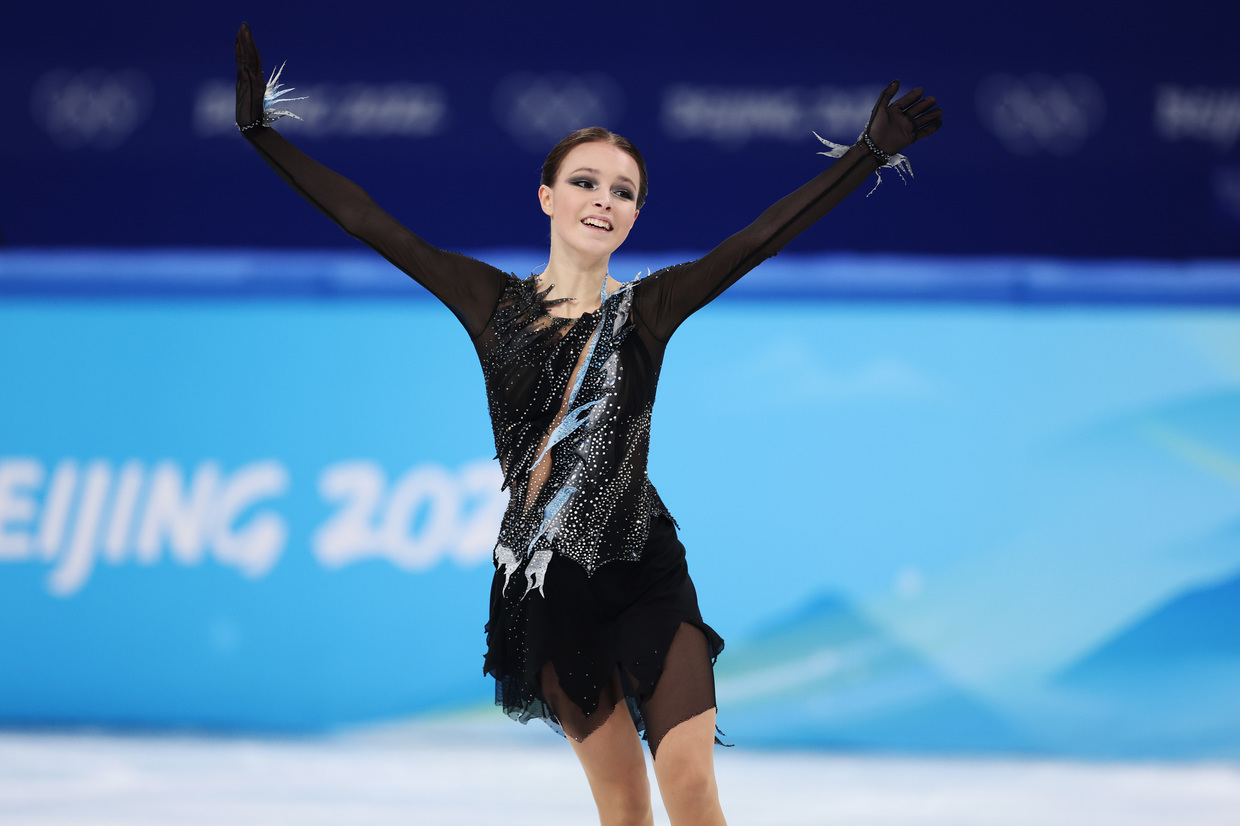
Trusova then slipped to fourth overall after Japanese contender Kaori Sakamoto recorded a score of 79.84 for her routine, enough to put her behind Valieva and Shcherbakova heading into the free skate program on Thursday, when the final standings will be determined.
The International Olympic Committee (IOC) has already said it will not hold medal ceremonies for the women’s or team events in Beijing, in light of the ongoing investigations into Valieva’s positive test for the banned heart medicine trimetazidine.
After already starring in the team event, Valieva was cleared to line up in the individual competition after a CAS panel ruled that imposing a suspension on her at the Games could do “irreparable harm,” while also noting her status as a minor.
Members of Valieva’s team as well as the ROC have maintained that she is innocent, citing repeated doping tests she passed both before and after her positive result – including at the Beijing Games.
Questions have also been asked as to why the test result took so long to be reported, despite the sample being taken back on December 25.
An IOC official said on Tuesday that Valieva’s team suggested the positive test may be the result of contamination from medication her grandfather was taking.












